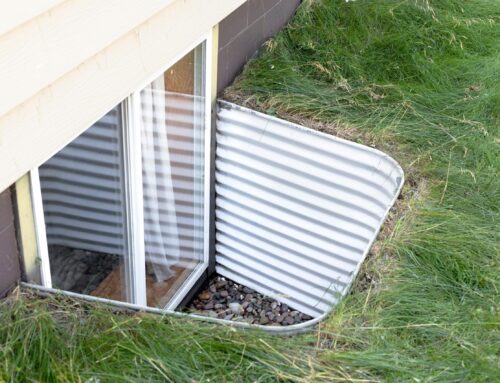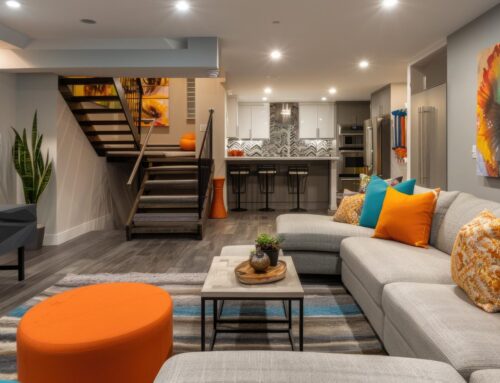If you’ve recently embarked on finishing your basement, you may be wondering what basement flooring would be your best option.
You’re looking at function, pricing, durability, and aesthetics. Above all, it helps to understand the lifestyle of the homeowner to make a good suggestion.
Here are some basement flooring options to consider and the purposes they each serve.
Is Tile a good basement flooring option?
Tile is a great option that many homeowners will use in their basement. It looks good, has durability, and is cheap.
But here’s the thing to consider with tile.
It absorbs the temperature of the floor beneath it and oftentimes, basements in Omaha are colder than the rest of the house. This means that tile will often feel colder in basements, especially if your HVAC system has issue regulating the temperature.
Tile is also a cheaper material, however, the installation and labor costs of tile can make the same overall costs as other materials.
Tile has some redeeming qualities too! It does hold up against moisture well compared to some products (wood, engineered hardwood, etc.) and some people prefer the aesthetics of tile.
If you plan on using tile for your basement flooring, it’s great around wet bar areas or for bathrooms.
Is Luxury Vinyl Tile (LVT) a good basement flooring option?
LVT has been around for almost a decade, but within the last 2-3 years, it has been increasing in popularity.
If you think about “vinyl flooring” your mind immediately goes to your Grandma’s outdated kitchen flooring. This is not the case with LVT.
With the advances if printing technology and imaging, vinyl tile has come a long way. Whereas in the past it was one large sheet of vinyl, manufacturers are now printing them in planks. They’re created to mimic wood and marble while being much more affordable and durable in composition.
In fact, to an untrained eye, you may look at LVT and mistake it for the real thing. This is why it’s now such a popular option for flooring, especially in basements. Additionally, many LVT products can be installed directly onto cement flooring making even the labor costs significantly cheaper.
We recommend homeowners use LVT for the bar areas or bathrooms. You’ll be impressed with the looks, durability, and pricing. To learn more, check out Adura Vinyl Planks.
Is Carpet a good basement flooring option?
Carpet has long been a popular choice for many homes. In basements, especially, since you’re going from hard, cold cement to soft, cushy, and warm carpet.
We all know that carpet is great for basement flooring, so here are really the things you should consider (besides color).
Nylon or Polyester carpet? All carpets are composed of either one of these two products. To understand which you would want to choose for your basement, it helps to know how they differ.
Nylon is a more durable product and easily will last 20 years in a home. The way it’s threaded leaves it retaining the “new” form for much longer period of time. Accordingly, you pay for the price difference.
Polyester is a more commonly used product because of the price point. It shares many of the positive attributes of Nylon, but a much cheaper price. The downfall is that over time it will get matted down with heavy traffic. Vacuuming and carpet cleaning will “fluff” it up again, however, only for a short period of time.
To choose between the two, it might help to understand what you want out of your basement carpet. Do you think that you may want to change it in a few years after wear? Stains from kids or pet (or adults if we’re being totally honest)? To update the interior look of your home?
In that case, polyester carpet may fit the bill. However, if you like durability and expect to stay in the home for a long time with little change to design then nylon carpet might be the better option.
Is wood a good basement flooring option?
Wood, unfortunately, is probably not a good option for basement flooring. Solid would is susceptible to moisture and will often warp or buckle under enough exposure. (This is especially a concern for basements since cement is porous)
Engineered hardwood, on the other hand, is a good option. It’s moisture-resistance and far more durable than real wood.
The only real downside is the cost. It’s about double the cost of LVT in both raw materials and labor. The differences are so subtle that we often recommend LVT to homeowners, especially for basement floors.
Summary
There are several types of basement flooring options that homeowners can choose from. We suggest you pick a knowledgeable basement contractor that can walk you through your options based on your lifestyle and future plans.
If you want to work with Hawthorne, fill out our contact form to get started!





